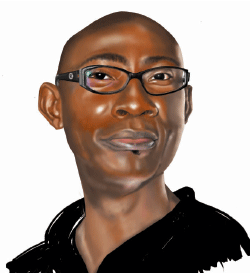On Tuesday, March 10, President Goodluck Jonathan sacked Subsidy Reinvestment and Empowerment Programme (SURE-P) Chairman, Martin Luther Agwai, and replaced him with former National Assembly Service Commission Chairman, Ishaya Dare Akau.
Although the sudden development appeared shocking to many, to those who have been reading the body language of Jonathan and members of his kitchen cabinet it did not. Reason: There was no way Agwai would have remained in that position after fraternising with former President Olusegun Obasanjo about a fortnight ago when baba turned 78.
The statement that announced Agwai’s removal was terse and pregnant with insinuations that the former Army Chief may have lost confidence in the government and the trust of the man who appointed him.
Senior Special Adviser to the President on Media and Publicity, Reuben Abati, in announcing Agwai’s removal noted that the action was in furtherance of Jonathan’s “efforts to continuously re-energise and reposition agencies of the federal government for optimal service delivery.”
The statement added that Jonathan “thanks [Agwai] for his service to the nation and wishes him well in his future endeavours.”
When news of his immediate sack broke without the employers giving any particular reason for it, analysts grasped that it may be connected with his statement on March 5 at a lecture in honour of Obasanjo’s 78th birthday where he said “change was inevitable.”
Agwai, in his lecture at the event that had other prominent Nigerians in attendance, said: “In life, you find out that everything needs change, if that is what the community wants, what the people want, you must give it to them and as such, it becomes inevitable.
“You can have everything nice, but, if you don’t have the right leadership to propel it, it cannot go anywhere.
“Integrity matters, doing what is good for the larger society, and not just what you want to do for a narrow society to please yourself.”
No sooner did Agwai make the statement than it was interpreted by those who claim they have the ears and eyes of Jonathan as comment targeted at denigrating him, taking advantage of his frosty relationship with Obasanjo which has become a matter of public concern.
If Agwai, a former Chief of Army Staff (COS) and former Chief of Defence Staff (CDS), was shoved aside with ignominy from the SURE-P office over a comment that bothers on his freedom of speech and conscience, it goes a long way to show how much regard we have for the rule of law necessary for deepening democracy.
It is worrisome that SURE-P, which potency the Jonathan administration has touted in job creation and poverty alleviation, is suffering from this high attrition rate of its leaders, a few years into its establishment.
Respected elder statesman and former Nigeria’s Ambassador to the United Kingdom, Christopher Kolade, who served as its pioneer Chairman also left in circumstances described as controversial.
To date, apart from Kolade himself who gave an inkling into why he was done with the SURE-P job, the government has refused to disclose the real reasons he could not stay to see the programme through as he had pledged during his inauguration.
Kolade told Jonathan when he appointed him into the SURE-P office in 2012 that he “took up the offer to demonstrate his love for the country,” and that “rejecting the appointment would have amounted to wishing the initiative failure.”
We are not going to revisit the issues that led to Kolade quitting SURE-P, but what we do know is that shortly after the Senate ad-hoc committee on the programme had accused the Nigerian National Petroleum Corporation (NNPC) of mismanaging N500 billion that ought to have accrued to SURE-P under Kolade’s watch, he could not tolerate allegations of financial and performance credibility in the programme.
Ever since Kolade left the position and saw some of the things happening in the present administration, he has not hesitated to condemn the Jonathan administration as one lacking in the right leadership.
At the sixth Christopher Kolade Symposium organised by the Nigeria Leadership Initiative last year, Kolade chided the campaign of pro-Jonathan non-governmental organisations, saying, “Nigeria was, at every other time, better than now.”
He referred to Jonathan’s decision to honour a political rally in Kano shortly after a bombing that killed several people early in the year, saying the best he could have done was “to postpone the political event. For choosing to continue with the programme, the president did not demonstrate that he was sensitive to the pains of the people.”
Lamenting the drift in leadership quality, Kolade added: “If we get to a point when we do not care how the country is led, we have lost hope. The country is where it is today because some people sacrificed. Unfortunately, beyond stealing, our leaders are not ready to sacrifice anything.”
He said no Nigerian was happy with the leadership style and the manner public institutions were operated.
Most people had spoken up about the leadership style of Jonathan, like Kolade, and the issue is that those who are manning the president’s public institutions use same to live a lie and foster selfish interest.
It does not matter if Jonathan is good, but because the bulk stops on his table Nigerians expect that he should rein in those advising him on matters of public interest. The feedback Jonathan’s men take to him on matters of public interest have turned out to work against him.
The removal of Agwai for canvassing change looks both laughable and childish, and portrays Jonathan as highly intolerant of dissenting views. That can only happen in a dictatorship. But we are practising democracy even though many think it is simply a civilian regime.
Enough of Buhariphobia
On Tuesday, March 10, Peoples Democratic Party (PDP) governors met with media executives in Lagos.
They skirted around the postponement of the elections and dwelled on achievements of Jonathan in the past four years, Permanent Voter Cards (PVCs), card readers, in(security), preparation by the Independent National Electoral Commission (INEC), and by extension, the activities of the All Progressives Congress (APC).
The governors took turns to voice their opinion on what ought to be or not. An evaluation of their speeches indicated that if they spent three hours with media chiefs, two hours were lavished discussing the presidential candidate of the APC, Muhammadu Buhari.
Those who did not directly discuss Buhari dwelt on the change slogan his party canvasses.
From Governors Ayo Fayose (Ekiti) to Godswill Akpabio (Akwa Ibom) to Segun Mimiko (Ondo) to Babangida Aliyu (Niger) to Sule Lamido (Jigawa) to Jonah Jang (Plateau) and Liyel Imoke (Cross River), among others, something that looked like Buhariphobia or changephobia was worn like clothes that you begin to wonder why it is so.
Buhari and his party are preaching change, whether they mean in or not, while Jonathan and his PDP members are insisting on continuing with the transformation agenda of the government. Both campaign slogans are fair enough. Nigerians are interested in the positive issues around these slogans.
Making the personality of Buhari, his age and whether he wears pampers or not and whether he will die soon if elected president, are nauseating and boring.
The PDP has enough grounds to win this election if it is held any moment from now, but let the leaders concentrate on the issues and forget Buhari’s personality.
The more the party and its leaders take on Buhari and highlight his negative aspects, the more prominent they make him appear before the public. That is the irony of the phobia at work.













